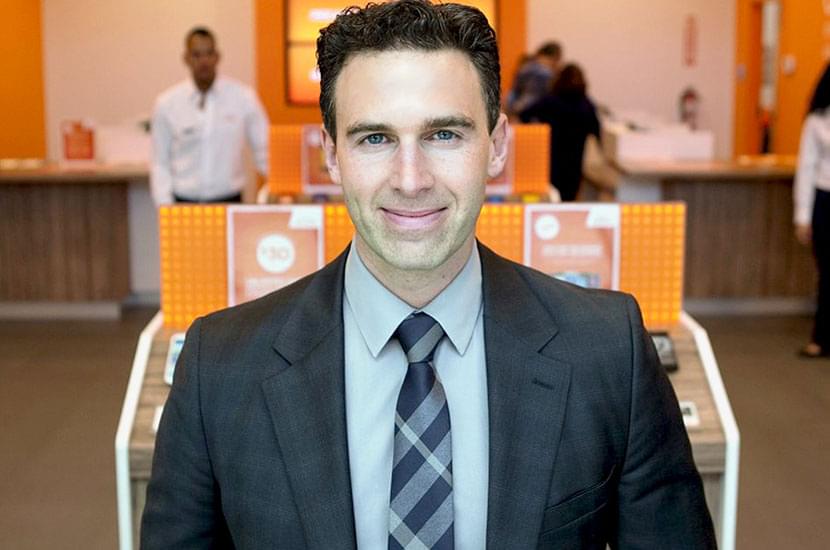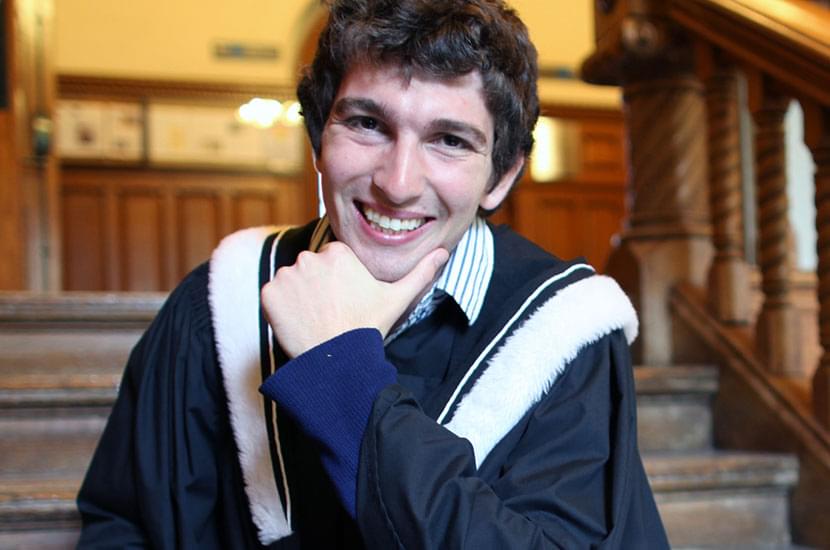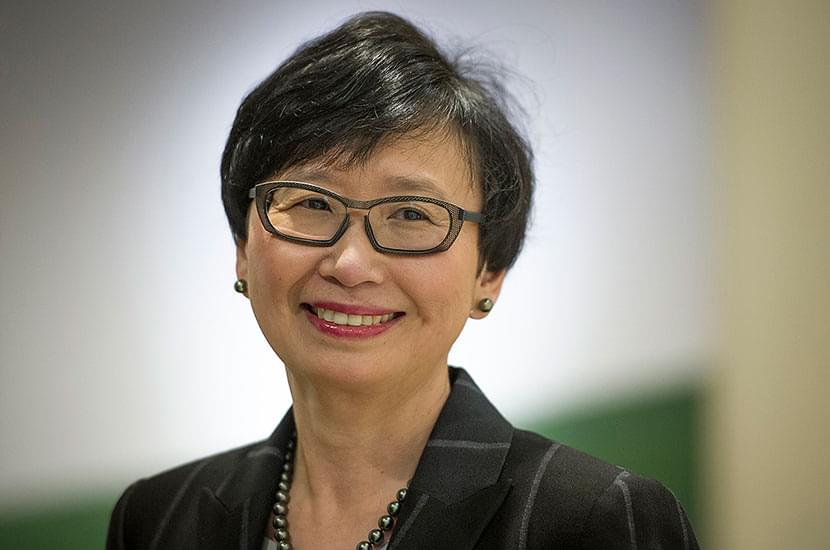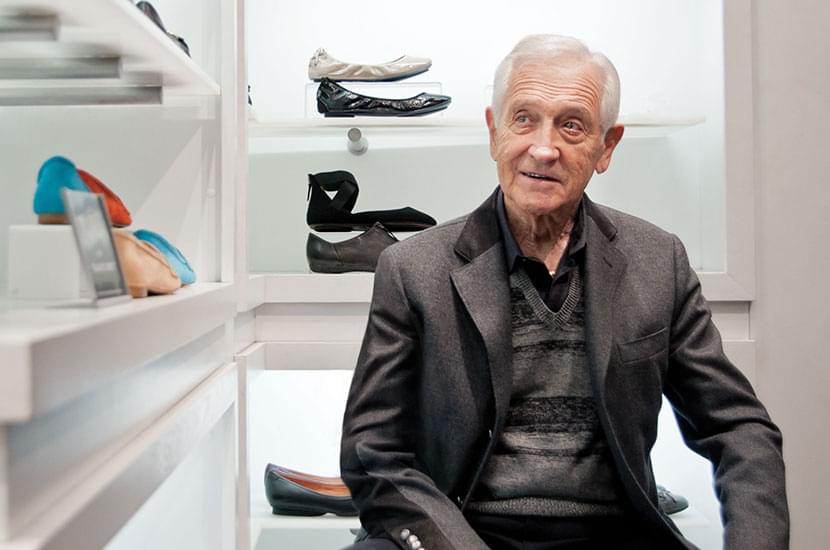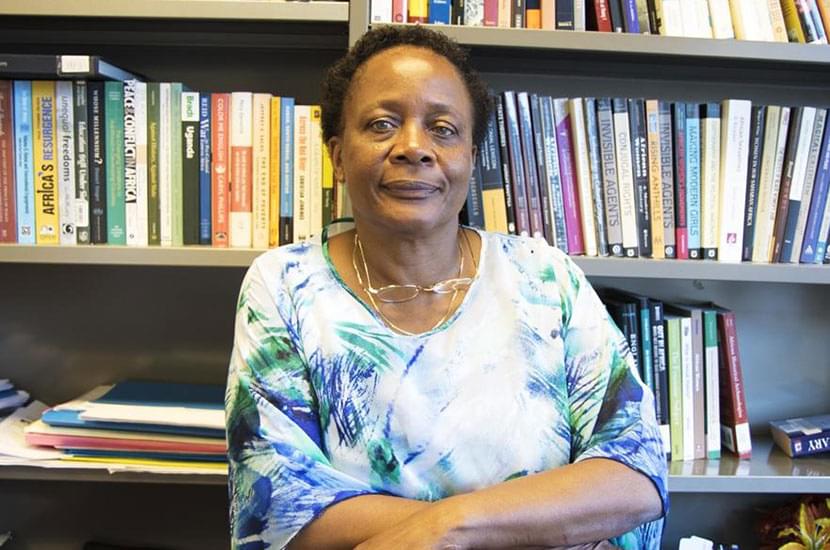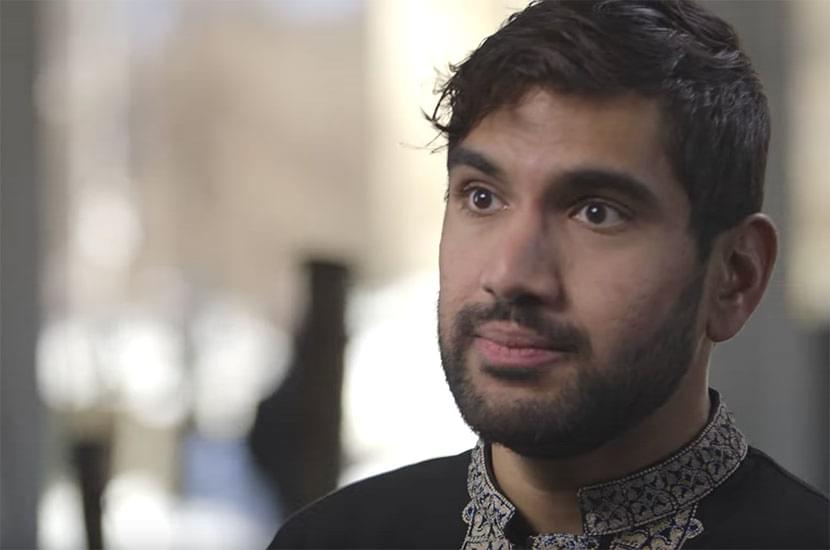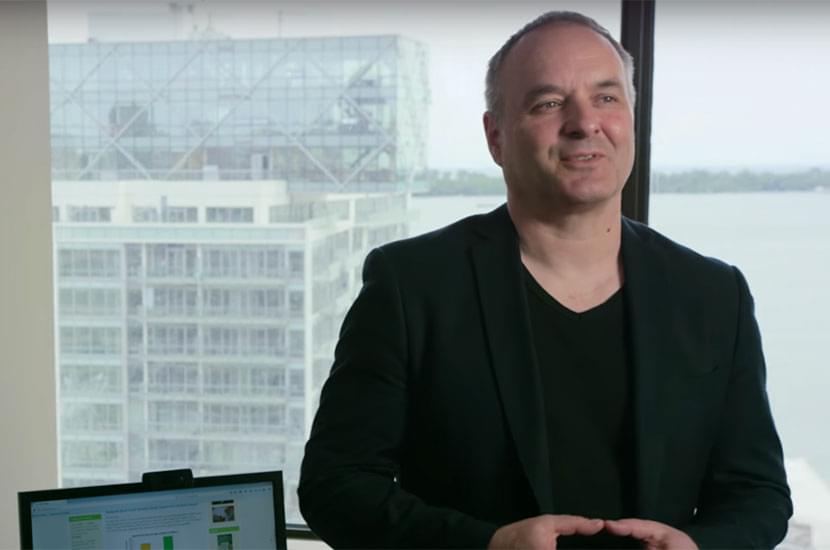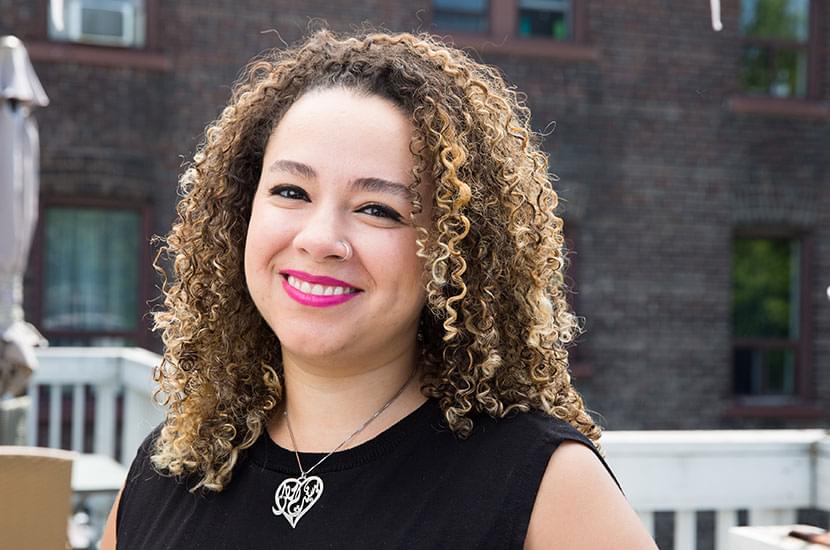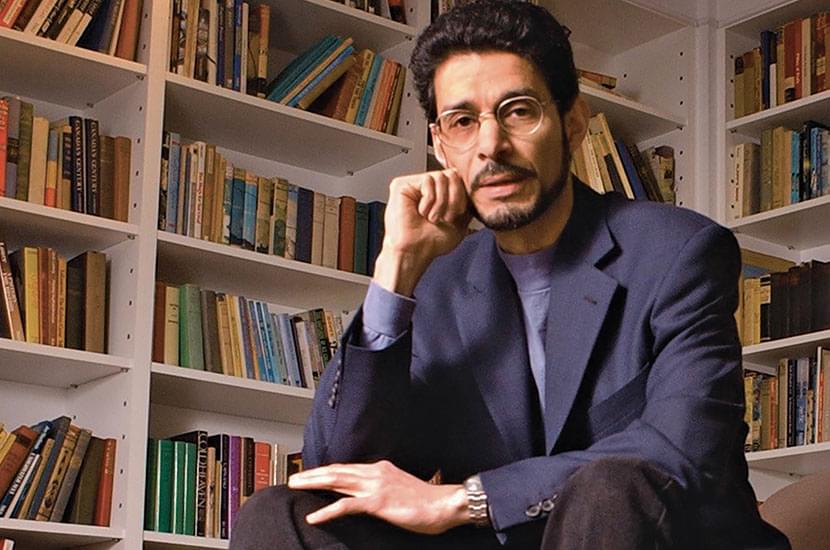Alumni Impact Survey
Results from our 2017 Alumni Impact Survey reveal that U of T alumni help generate economic wealth and prosperity, are respected community volunteers and mentors, and are prolific creators of academic and creative works.

Survey Highlights
Today, a distinguished network of more than half a million U of T graduates is making valuable economic, social and cultural contributions around the world. Now, thanks to the 2017 Alumni Impact Survey results, we can more accurately measure the many ways our diverse and multitalented alumni contribute to society.
Employment, entrepreneurship & investment
U of T alumni start flourishing and profitable companies, invest in innovative startups, and are employed in meaningful and important work.
U of T startup Trexo Robotics produces easy-to-use robotic devices for children with walking impairments.
Alumni are gainfully employed
When it comes to employment, alumni active in the labour force enjoy a 97.6 per cent employment rate, with a higher percentage of alumni participating in the knowledge-intensive economy compared to the national average, particularly in the educational, legal, health and government sectors.
Alumni are company founders
Whether it’s founding major multinational companies or vibrant local businesses, the Alumni Impact Survey confirms U of T alumni catalyze innovation and prosperity throughout Canada and internationally. They have launched hundreds of thousands of ventures across a broad section of industries and fields.
Alumni-founded companies: revenue & jobs
Alumni-founded companies generate billions of dollars in annual revenues—an amount roughly equivalent to one quarter of the Canadian GDP (2016). These companies employ millions of people in Canada and around the world.
Alumni invest in startups
U of T alumni actively support and fund entrepreneurial growth and have a strong record of success as investors, with two thirds of invested startups still in operation.
Alumni Stories
These featured alumni profiles on alumni.utoronto.ca reveal how U of T graduates fuel economic growth and prosperity.
Anthony Lacavera
Telecommunications is a big industry, run by major players. Anthony Lacavera started Globalive and made room for one more.
Janice Fukakusa
Many believe Canada withstood the world-wide financial crisis better than most because of the stability of our financial institutions. Janice Fukakusa is someone who helped us stay the course.
Board service, volunteerism & mentorship
University of Toronto alumni lead by example, sharing their time and expertise to help others as board members, volunteers and mentors in their respective communities.
Alumni help frame a house at a Habitat for Humanity event.
Alumni Serve on Boards
University of Toronto graduates are leaders and advisors for various influential organizations in the for-profit and non-profit sectors, with approximately one in five alumni serving on boards.
Alumni are active volunteers and mentors
Alumni Stories
Discover how alumni have given back to their communities as volunteers and mentors on alumni.utoronto.ca.
Leonard Simpson
Leonard Simpson is a shining example of the more than 10,000 alumni and friends who serve as volunteers and mentors at the University.
Nakanyike B. Musisi
Professor Nakanyike Musisi was one of two U of T faculty members honoured by the African Alumni Association.
Shawn Ahmed
In 2007, Shawn Ahmed went to Bangladesh with a laptop, a camera and a passionate yet indeterminate plan to help alleviate global poverty.
Academic, professional & cultural works
U of T alumni create hundreds of thousands of academic publications, professional and public policy documents, and artistic and cultural works.
Award-winning violinist and composer Owen Pallett (BMus 2002) performs on stage.
Alumni are prolific creators
University of Toronto graduates have long been regarded as important contributors to academic publications, professional practice and public policy documents, and the performing and literary arts. Now, the Alumni Impact Survey reveals the scale of this remarkable creative output.
Alumni Output by type
Whether it's acclaimed professors, influential thought leaders, or legendary directors, visual artists, musicians and authors, U of T alumni produce a variety of works across a wide spectrum of fields.
Alumni Stories
Read how alumni contribute to academic, policy and artistic works with these featured alumni stories at alumni.utoronto.ca.
John Mighton
Imagine a popular playwright who doubles as an advocate for literacy in mathematics. No need to imagine: John Mighton is for real.
Pacinthe Mattar
After spending years in far-flung locales such as Saudi Arabia, radio journalist Pacinthe Mattar is exploring Canadian concerns.
Rohinton Mistry
Rohinton Mistry is the only author ever to have all his novels shortlisted for the Man Booker Prize.
Background & Methodology
The primary goal of the Alumni Impact Survey (AIS) was to evaluate the impact made by University of Toronto graduates. To achieve this goal, the university engaged in a research project in which we collected high quality survey data on key aspects of the impact of U of T alumni, including measures of social, cultural and economic impact. This project was reviewed and approved by the University of Toronto Research Ethics Board.
The project was carried out under the direction of principal investigators, Professor Vivek Goel, Vice-President Research and Innovation, and Professor Shiri M. Breznitz, of the Munk School of Global Affairs, and an Alumni Impact Steering Committee of senior University staff. An Advisory Committee of U of T faculty and alumni was consulted at various stages of the project. To ensure the confidentiality of the information collected, and to provide data management and preliminary analysis, an independent research firm, R.A. Malatest and Associates Ltd (Malatest), was engaged to administer the survey.
The total living U of T alumni population is about 545,000. The alumni were surveyed in four ways: first, all 238,768 alumni with email addresses, who had not opted out of receiving emails, were invited in April 2017 to participate in the online survey. Survey reminder emails were used to improve participation. Second, a sample of 10,000 alumni were contacted by Malatest by telephone and asked to complete the survey online or over the telephone. Third, a different sample of 10,000 were sent survey invitations by mail with a unique online survey access code. The characteristics of email respondents were monitored to inform the design for the phone and mail sample to ensure the overall respondent pool reflected the demographics of the entire alumni population. Lastly, alumni could also access the online survey directly through the Alumni Impact Survey website. The survey closed June 26, 2017.
The overall response rate was approximately 8% or just over 21,000 respondents. Demographic information about alumni from University records was used for weighting and other data-validation purposes following standard statistical methods. The resulting respondent sample was weighted to correct for differential response rates among demographic subgroups and then scaled so that estimates could be made for the University of Toronto alumni population as a whole. As demonstrated in the table, the characteristics of the respondents generally match those of the overall alumni population.
Survey respondents compared to Alumni population
| Segment | # Completes | % Completes | % of Alumni Population |
|---|---|---|---|
| 20-29 | 3,243 | 16.8 | 14.2 |
| 30-39 | 3,910 | 20.2 | 20.3 |
| 40-49 | 3,268 | 16.9 | 17.7 |
| 50-59 | 3,132 | 16.2 | 16.7 |
| 60-69 | 2,722 | 14.1 | 14.7 |
| 70+ | 3,068 | 15.9 | 16.1 |
| Segment | # Completes | % Completes | % of Alumni Population |
|---|---|---|---|
| Male | 8,862 | 45.8 | 47.1 |
| Female | 10,472 | 54.1 | 52.8 |
| Segment | # Completes | % Completes | % of Alumni Population |
|---|---|---|---|
| St. George / NA | 16,768 | 86.7 | 81.8 |
| UTM | 1,316 | 6.8 | 9.4 |
| UTSC | 1,267 | 6.5 | 8.8 |
For data on founded companies, several adjustments were made to remain conservative, such as independently validating ventures with high revenues or employment numbers, and applying a scaling factor (0.992) to account for the assumption that some companies would have multiple U of T alumni founders.
